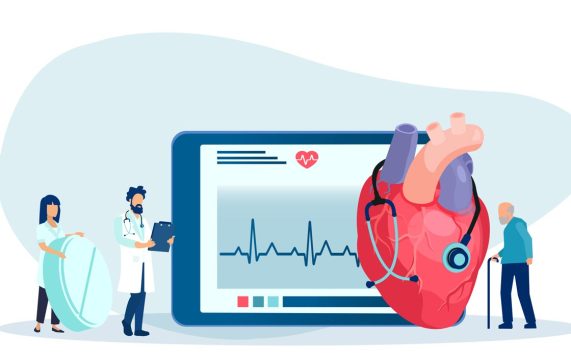Advertisment
High-dose painkillers appear to increase cardio risks, which can be predicted

Taken from the Lancet – by Bruce Sylvester – High doses of some non-steroidal anti-inflammatory drugs (NSAIDs) increase the risk of major vascular events (non-fatal heart attacks, strokes, and death) by about a third, researchers reported in the Lancet Online First on May 29, 2013
Lead investigator, Professor Colin Baigent from the Clinical Trial Service Unit and Epidemiological Studies Unit, University of Oxford, UK, said “Whilst NSAIDs increase vascular and gastrointestinal risks to a varying extent, our analyses indicate that the effects of different regimens in particular patients can be predicted, which may help physicians choosing between alternative NSAID regimens to weigh up which type of NSAID is safest in different patients.”
As background, the authors noted that NSAIDs are among the most commonly used drugs worldwide. Earlier research linked them to increased risk of gastrointestinal problems. A new group of NSAIDs (coxibs), which were designed reduce these gastrointestinal side effects, show signs of increasing the risk of heart attacks and death.
In the Lancet study, the investigators found that higher dose regimens of diclofenac 150mg and ibuprofen 2400mg daily also appear to be associated with risks of heart disease.
The Coxib and traditional NSAID Trialists’ (CNT) Collaboration combined and analysed retrospectively data on outcomes of over 353 000 subjects, comparing one NSAID to another NSAID, or to placebo. The meta-analysis involved data from 639 randomised trials.
The investigators reported that, for every 1000 individuals with a moderate risk of heart disease treated for 1 year with high-dose diclofenac or ibuprofen, about three would have an avoidable heart attack, and one would be fatal.
Also, all NSAIDs appeared to double the risk of heart failure and produce a 2–4 times increased risk of serious upper gastrointestinal complications.
Notably, for clinical and predictive purposes, they found that the increased risk of heart attacks from individual NSAIDs appeared to be proportional to underlying risk of heart attack, meaning that the risk is greatest for those with a previous history of heart disease, or those with cardiac risk factors like high blood pressure or cholesterol.
In a linked Comment, Marie Griffin, MD, professor of preventative medicine at Vanderbilt University Medical Center in Nashville said, “The meta-analysis offers considerable certainty about relative and absolute major vascular risks of high doses of the most commonly prescribed NSAIDs, but leaves large gaps about risks associated with lower NSAID doses, longer durations of use, and residual effects after stopping treatment.”
She added, “Identification of safe and effective strategies for chronic pain is sorely needed. In the meantime, long-term use of high dose NSAIDs should be reserved for those who receive considerable symptomatic benefit from the treatment and understand the risks.”





